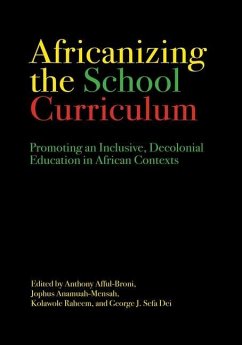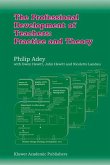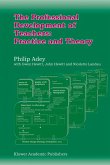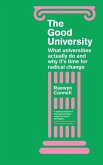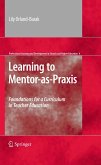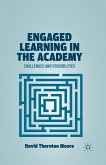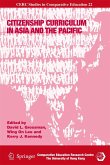Connecting cultures to educational settings is an essential component of critical pedagogy. This book addresses many of the key issues and challenges in decolonizing the African school curriculum. It highlights important philosophical arguments on the challenges and possibilities of achieving these goals in a meaningful manner. Topics covered in the book include: * operationalizing the key terms of "inclusion" and "curriculum" * strategies for Africanizing the school curriculum, and * the implications of local knowledge for schooling reform This book also raises a variety of key questions: * how do we frame an inclusive anti-colonial African future and what is the nature of the work required to collectively arrive at that future? * what education are learners of today going to receive and how will they apply it to their schooling and work lives? * how do we re-fashion our work as African educators and learners to create more relevant understandings of what it means to be human? * how do we challenge colonizing and imperializing relations of the academy? What are the possibilities and limits of counter-visions of education? * how do we make school curricula inclusive through teaching, research and graduate training in questions of Indigeneity and multi-centric ways of knowing? The book identifies specific areas of an "inclusive/decolonized curriculum agenda" through educational programming and reform. It is essential reading to any student or teacher concerned about understanding the many facets of an African school curriculum. Perfect for courses such as: Principles of Anti-Racism Education Anti-Colonial Thought: Pedagogical Implications Indigenous Knowledge and Decolonization: Pedagogical Implications Modernization, Development and Education in African Contexts African Systems of Thought Introduction to African Studies
Hinweis: Dieser Artikel kann nur an eine deutsche Lieferadresse ausgeliefert werden.
Hinweis: Dieser Artikel kann nur an eine deutsche Lieferadresse ausgeliefert werden.

